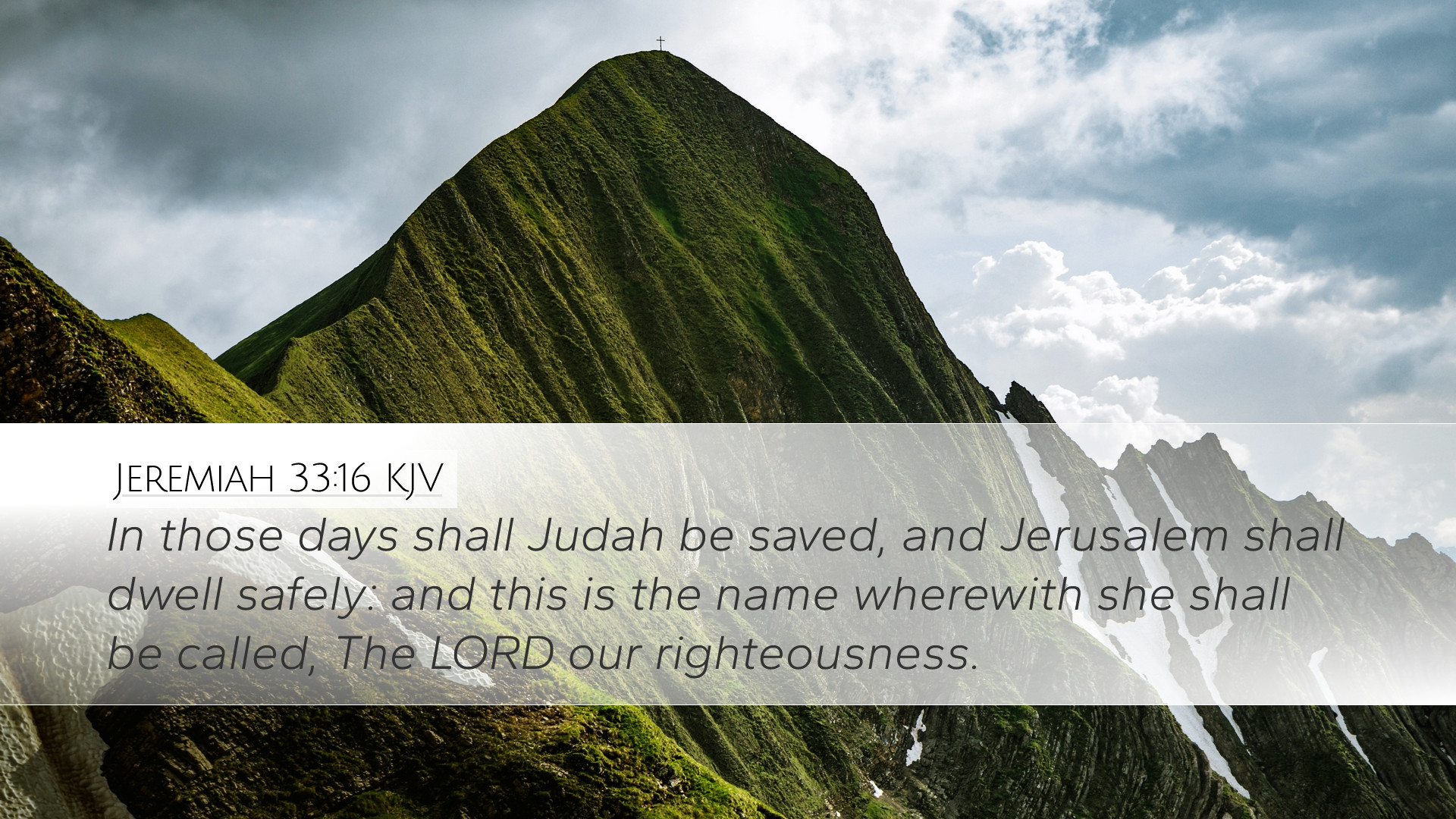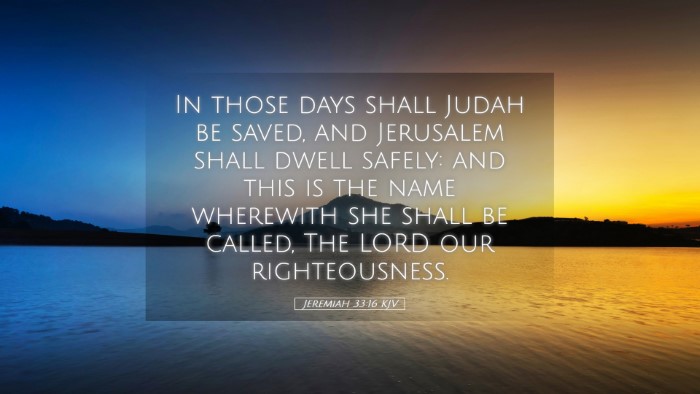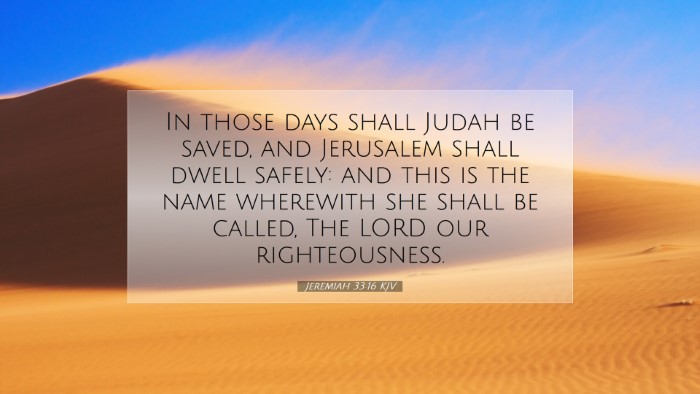Jeremiah 33:16 Commentary
Verse Reference: Jeremiah 33:16 - "In those days shall Judah be saved, and Jerusalem shall dwell safely: and this is the name wherewith she shall be called, The Lord our righteousness."
Introduction
The book of Jeremiah serves as a profound narrative of God's dealings with His people during a tumultuous period of their history. Jeremiah 33:16 is a pivotal verse, encapsulating the promise of restoration and righteousness in the face of overwhelming despair. This commentary will explore the depths of this verse through insights derived from respected public domain commentaries, combining the wisdom of Matthew Henry, Albert Barnes, and Adam Clarke.
Contextual Background
Before delving into the specifics of Jeremiah 33:16, it is important to understand the context. Jeremiah prophesied during the final days of Jerusalem before the Babylonian exile. The book is characterized by a tension between judgement and hope, wherein God reveals both the consequences of sin and the promise of redemption.
- Historical Context: The people of Judah faced imminent invasion by Babylon, leading to despair and confusion.
- Theologial Significance: This verse serves as an assurance of God’s covenant faithfulness to His people.
Exegesis of Jeremiah 33:16
The verse outlines a dual promise: salvation for Judah and safety for Jerusalem. Each component carries significant theological weight.
Judah Will Be Saved
Matthew Henry highlights that the salvation of Judah signals a future deliverance, both physical and spiritual. The term “saved” suggests not merely the absence of external threats but an internal transformation. The people will experience restoration in their relationship with God, moving from rebellion to reconciliation.
Jerusalem Will Dwell Safely
Albert Barnes emphasizes that Jerusalem, as the spiritual heart of Israel, represents the presence of God among His people. To dwell safely implies that the inhabitants will enjoy peace and security as a result of divine intervention. This peace is not simply the cessation of war but a holistic well-being found in God’s righteousness.
The Name: The Lord Our Righteousness
Adam Clarke draws attention to the profound significance of the name given to Jerusalem in this verse. “The Lord our righteousness” (Jehovah Tsidkenu) encapsulates the essence of salvation and restoration. It indicates that God Himself will be their righteousness and strength, fulfilling the prophecy of a coming Redeemer. This name also implies a relational aspect; it is not merely a title but a declaration of identity for the community of faith.
Theological Implications
This verse opens up several theological implications that are crucial for pastors, students, and theologians. It affirms the unchanging nature of God’s promises and His commitment to redeem His people.
- God’s Covenant Faithfulness: Even amidst judgement, God provides hope.
- The Role of Righteousness: Personal and communal righteousness is rooted in God.
- Prophetic Foreshadowing: This verse foreshadows the coming of Christ as the ultimate fulfillment of righteousness.
Practical Applications
In light of the insights derived from Jeremiah 33:16, there are powerful applications for contemporary faith communities.
- Hope in Despair: Pastors are encouraged to draw from this text to offer hope in challenging times.
- Encouraging Righteousness: Teachings can focus on the necessity of pursuing righteousness as a community.
- Emphasizing the Redeemer: Use this verse as a means to point to Christ as the embodiment of God’s righteousness.
Conclusion
In summary, Jeremiah 33:16 stands as a beacon of hope and a reminder of God’s unwavering faithfulness. The integrations of commentary insights from individuals like Matthew Henry, Albert Barnes, and Adam Clarke affirm that despite the circumstances faced by the people of God, restoration and righteousness are within reach. As leaders and scholars explore this profound text, may they communicate the depth of God's promise and the richness it offers to our understanding of faith and community.


